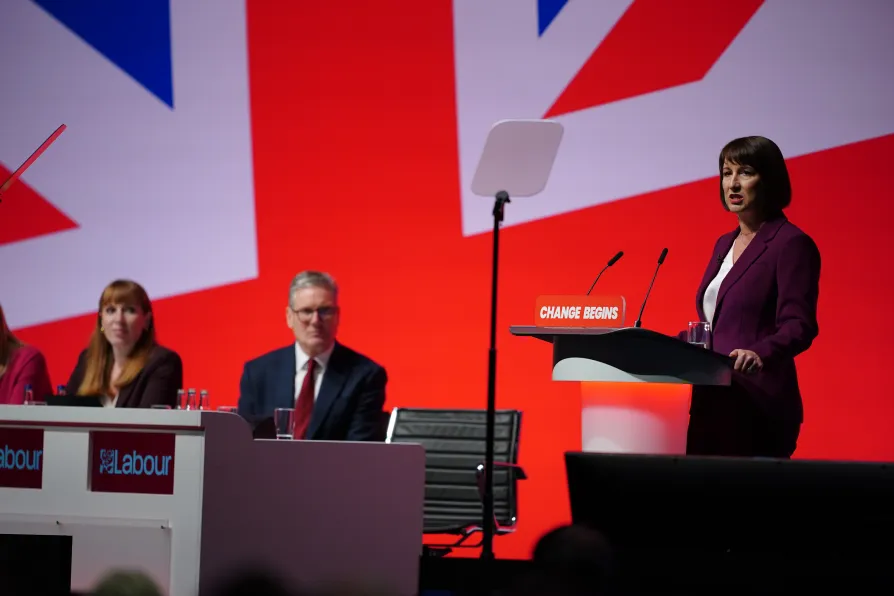
 Chancellor of the Exchequer Rachel Reeves speaks during the Labour Party Conference at the ACC Liverpool, September 23, 2024
Chancellor of the Exchequer Rachel Reeves speaks during the Labour Party Conference at the ACC Liverpool, September 23, 2024
BUDGETS are always important, but the first Budget of this Labour government has assumed greater consequence than ever.
Due on October 30, Rachel Reeves’s statement is being billed as an opportunity to rest the government’s direction, just three months into its term of office.
That such a relaunch is needed speaks to the ineptitude with which Keir Starmer has gone about his business in Downing Street.
He has squandered whatever goodwill he started with through sleaze and infighting, on top of a policy agenda which has prioritised punishing the poor for a “black hole” Reeves claims to have discovered in the public finances.
The return to austerity embodied in the decisions to cut winter fuel payments to pensioners and keep the two-child benefit cap, allied to the hypocrisy of then taking lavish gifts from the very rich, is surely to blame for Labour’s poll slump to 29 per cent, just a point ahead of the leaderless Tories.
So a lot rides on Reeves’s policies and presentation. The Labour conference scarcely clarified what the government’s objectives are, so she has a vacuum to fill.
To date, the Chancellor has sent mixed messages. She spent weeks harping on about the malign Tory inheritance and the need for “tough measures” to steady the ship.
More recently she has pledged to “invest, invest, invest” in a country sorely in need of such a thing.
To square the circle, in her conference speech she announced that she was telling the Treasury to start taking into account the benefits of investment as well as the expense.
That is such a basic point it is alarming to learn that the Treasury needed to be told it, and it is testament to the death grip its orthodoxies, which serve the City of London only, has on official economic thinking.
Where will that money to invest come from? Starmer has said that “the broadest shoulders” will bear the burden of restoring the balance sheet, something entirely contradicted by Labour’s actions to date.
Investment cannot be at the expense of public services and other current government spending, already pared to the bone after 14 years of austerity.
It can only come from raising revenue from the rich and businesses, or by expanding the quantity of government debt.
Here Reeves should have one document at her elbow as she writes her statement — it is the resolution passed by the Labour conference, at the instigation of Unite the union, in the teeth of the leadership’s opposition.
The headlines were, rightly, about the party’s rejection of the government’s attack on pensioners. But there was more to the resolution than that.
It called for the introduction of a wealth tax targeting the top 1 per cent, an excess profits tax, the application of National Insurance to investment income and the equalisation of capital gains tax with income tax.
Those are essential measures to raise the funds needed to tackle the crises in the NHS, local government, universities, the water industry and much else.
But just as important was the resolution’s call for discarding the fiscal rules inherited from the Tories which Reeves has pledged to follow.
These squeeze government spending into an entirely unnecessary short-term straitjacket. There is no danger of a run on the pound or of a repetition of the Truss-Kwarteng crisis of 2022.
There are reports that Reeves may be looking for ways to massage the rules to give herself more breathing space.
The important thing is that such space is used to put austerity behind us and invest in infrastructure and services. That is the only reset that will work.














